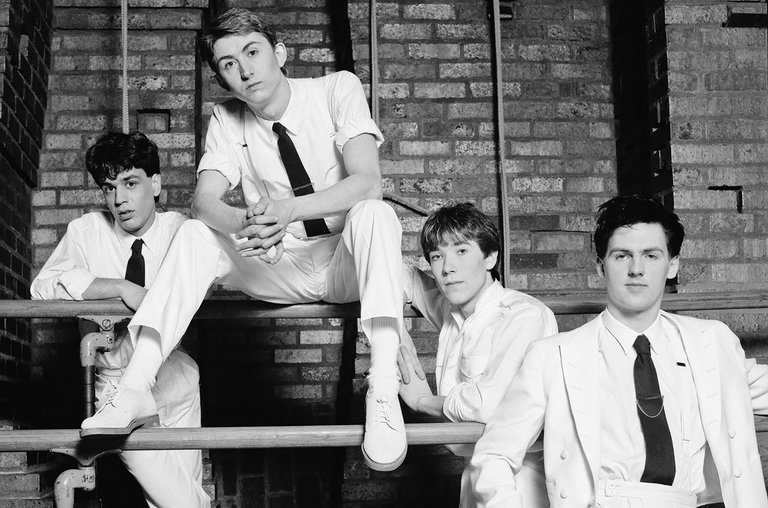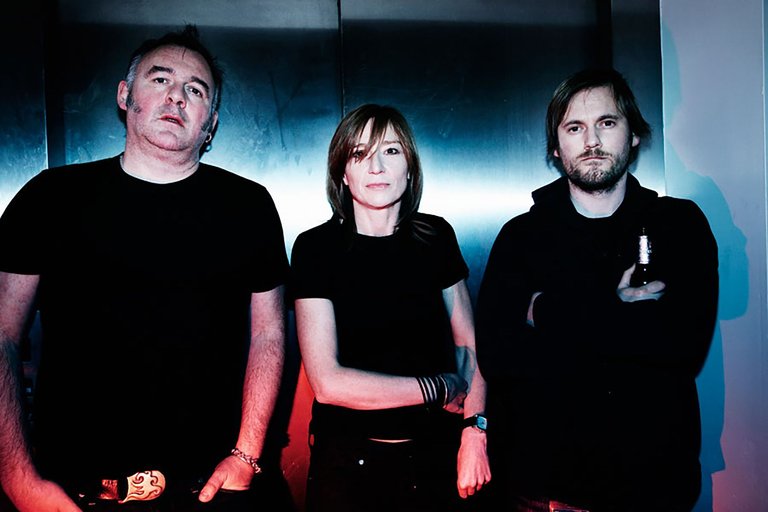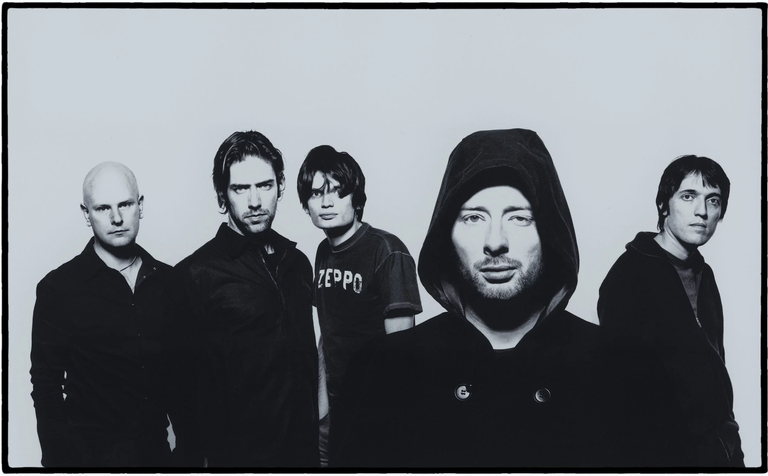
INTRODUCTION
I often post some of (my) music on @Peakd's Snaps. I give up or burn the rewards because I don't think I'm doing anything productive for HIVE. I just share a link. I didn't create the videos, so the reward here is meaningless.
However, I always thought I'd like to write about the music I listen to and publish. Snaps limits characters, just like X. I've limited myself to excerpts from the songs, or some more personal thoughts.
I went crazy when I discovered yesterday that the “Alternative Weekend” community is dedicated to promoting music that is “Alternative, Progressive, Metal, Punk or any other Non-Mainstream Artist(s) or Bands”.
HIVE never ceases to amaze me. I scrolled through the existing publications and immediately identified with the community. Especially when I saw, among others, the band Marillion. This band caught my attention as a teenager and I still listen to them today as if for the first time. Especially the album Misplaced Childhood. A masterpiece.
It's interesting to read that one of HIVE's biggest stakeholders, “Blocktrades”, says that Marillion is one of his favorite bands. To read his comment is to understand the fascination with this band that marked the 80s/90s.
I know this should be published this weekend, so forgive the delay from last weekend - or the anticipation of next weekend 🤗 Sorry @slobberchops

LET'S DO THIS
I couldn't start any other way, so you'll understand why this is a resilient triology. The first band I chose to collaborate with in the community is: TALK TALK (Life's What You Make It). And consequently two bands inspired and influenced by them: PORTISHEAD (The Rip) and RADIOHEAD (Everything In Its Right Place).

TALK TALK - Life's What You Make It

📸 Copyright: studio.curchod@swissmedia.ch / bideodromage.com
Talk Talk seriously marked my teenage and early adult years. A band formed in England in 1981, its initial members were Mark Hollis (vocals, guitar and piano), Lee Harris (drums) and Paul Webb (bass). They were later joined by Simon Brenner (keys, synthesizers).
Labeled as part of the New Wave movement, they lived as a band for about a decade. They broke up at the height of their career. Few bands manage to do that, they drag on into old age.
They immersed themselves in dense, experimental themes, anticipating a series of concepts that would underpin Post-Rock. Their music straddles such disparate universes as jazz influences, synth-pop, improvised chords, alternative rock, experimental and atmospheric sounds.
Talk Talk's life lasted about a decade.
DISCOGRAPHY

Talk Talk have released 5 original albums, 15 compilations and 24 singles.
Mark Hollis takes his songwriting to a level of almost spiritual reflection, which is so present in this song “Life's What You Make It”. A celebration of life and our ability to create our own destiny. Life is what we make of it, an optimistic message that encourages acceptance and praises productivity.
Phrases like 'Yesterday's favourite, don't you hate it?' and 'Yesterday's faded, nothing can change it' suggest that while the past may have been good or bad, it shouldn't authenticate the present or the future. The song encourages celebrating the present moment and anticipating what's to come, rather than dwelling on the past.
Also in “Life's What You Make It”, the repetition of 'Everything's all right' reminds us that, regardless of the circumstances, if we adopt a positive attitude everything will be fine. This anthem of optimism and resilience reflects the essence of Talk Talk's musical and lyrical style, which continues to mark me out in life.
SAD COINCIDENCE
My late father was buried on February 25, 2019. During his funeral ceremonies, although I put my smartphone in Airplane Mode so as not to disturb him, I strangely received a notification from Google News: Mark Hollis has passed away.
It was precisely the power of resilience conveyed in their music that made me think, and believe, that the two of them would meet in heaven.
After the band's last album, Mark Hollis released a solo album, “Mark Hollis (1998)”. He then ended his career and devoted himself 100% to his family. He has always been discreet and far from famous. He died at the age of 64.

PORTISHEAD - The Rip

📸 Copyright: Copyright owned by NME/ IPC Media/ Andrew Whitton 2008.
British band Portishead, known for their melancholic trip-hop style, are also influenced by the sounds of Talk Talk.
One of the arguments for this thesis, the band's lead singer - Beth Gibbons - invited drummer Lee Harris (ex-Talk Talk) for her new solo album entitled “Lives Outgrown”, released last year. There is a very good melodic harmony between the two.
The song The Rip refers to human emotions and the never-ending quest for freedom, it's an emotional journey that questions pain, hope and the possibility of overcoming every challenge. It's very similar to Talk Talk's previous song. In terms of sound, if you remove the vocals, it's very reminiscent of Talk Talk.
I'm not going to dwell on this band, which, like the next one (Radiohead), deserves future posts. 😉

RADIOHEAD - Everything In Its Right Place

📸 Tom Sheehan/Courtesy of the artist. In NPR, "Radiohead circa 2000. Singer Thom Yorke (second from right) says that as much as the albums Kid A and Amnesiac channel the dread that loomed over their moment, they are also full of hope that another world is possible".
To close the triology, one of the bands that has been playing a few times on my @Peakd Snap. I've even published this song in another context.
It's a reflection on whether it's possible, in the midst of the chaos of our lives, to find harmony and meaning. An electronic atmosphere pervades this intimate and minimal song.
Thom Yorke, lead singer of Radiohead, has said on several occasions that Talk Talk was an important influence on him.
The concept and aesthetic, especially of last albums, influenced Radiohead, who showed admiration for their original sound and melancholic atmosphere.

Translated with DeepL.com (free version)